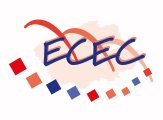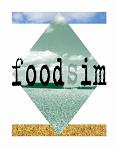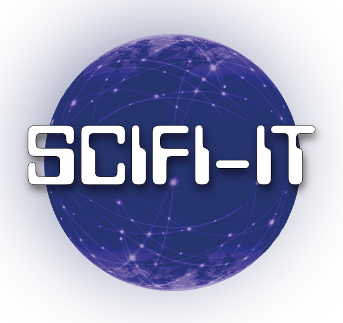EUROSIS organizes a number of conferences each year covering as many aspects as possible of computer simulation and modelling. Here follows the listing of events in chronological order. If you want more information about the specific events please go to the specific conference pages above or below.
Conferences Listing
- ASTEC - The Asian Simulation Technology Conference (Annual - March - Australasia) DISCONTINUED till further notice
- GAMEON ASIA - The Asian Simulation and AI in Games Conference (Annual - March - Australasia) DISCONTINUED till further notice
- FUBUTEC - The Future Business Technology Conference (Annual - April - Europe) DISCONTINUED and replaced by ISC
- EUROMEDIA - The Multimedia Applications Conference (Annual - April - Europe) DISCONTINUED and replaced by SCIFI-IT
- ECEC - The European Concurrent Engineering Conference (Annual - April - Europe) DISCONTINUED and replaced by ISC
- SCIFI-IT - The International Science Fiction Prototyping Conference (Annual - April - Europe)
- ISC - The Industrial Simulation Conference (Annual - June - Europe)
- FOODSIM - The Food and Nutrition Simulation Conference (Bi-annual - June - Europe)
- GAMEON-NA - The North American Simulation and AI in Games Conference (Annual - August/September - North-America) DISCONTINUED till further notice
- NASTEC - The North-American Simulation Technology Conference (Annual - August/September - North-America) DISCONTINUED till further notice
- SIMEX - The SIMEX conference (Annual - September - Brussels, Belgium) DISCONTINUED till further notice
- ESM - The European Simulation and Modelling Conference (Annual - October - Europe)
- GAME-ON - The European Simulation and AI in Games Conference (Annual - November - Europe)
- MESM - The Middle Eastern Simulation and Modelling Conference (Annual - December - Middle East)
- GAMEON-ARABIA - The Middle Eastern Simulation and Ai in Games Conference (Annual-December-Middle East) DISCONTINUED till further notice
Paper Submission
Papers should be submitted using either the conference online forms, the email links on the themes and workshop pages or by a direct email to the EUROSIS secretary general mentioning conference and topics or track of the submission. Each submission should include all full names of all authors (mentioning the prime contact), affiliations, addresses, WORKING, CURRENT AND CORRECT email and telephone/fax numbers (either below the title of the paper or as a footnote on the first page).
Paper Selection
All Submissions to EUROSIS conferences are peer reviewed by between 3 and 5 members of the international program committee (IPC). When only 2 reviews are available, the general conference chair or program chair of the specific conference or an EUROSIS conference board member provides a third review. The IPC consists of international experts who are leading researchers in the field, working in academia and industry.
After IPC selection the list of accepted papers is reviewed by the general conference and program chair of the specific conference; on the edge papers are re-reviewed. The papers that are promising but need more work enter a full second round of review and assisted improvement. The acceptance is based on the reviews and the quality of the submissions. There is no target for the acceptance rate; practically excellent papers are accepted. Excellent papers, which are accepted as extended papers make out 5% of the total number of papers submitted. These papers are automatically forwarded to specialized journals for journal inclusion. All accepted papers are indexed on INSPEC and ISI-Thomson after the conference.
Accepted papers are in two categories: (i) with minor revision, and (ii) with special request for revisions. Accepted papers with special request for revisions are submitted to a second round of revisions at the final stage. Papers originally accepted may be rejected if the special requirements are not satisfied.
Papers with very valuable ideas, but in much need of presentation improvements, are given special attention by the IPC who will help the authors to improve the paper. The final version is again revised by an IPC member to validate the quality.
Accepted and rejected papers are acknowledged; reviews are sent to the authors in both cases.
Camera-ready versions are validated again for accuracy; fraudulent final submissions of substituted or of on purpose unprofessional content will be rejected.
Reviewers are instructed to keep confidentiality on the submissions /either accepted or rejected/; only accepted papers are invited to be presented to the public audience.
Paper Quality
Authors can improve their papers by adhering to the following points as set out by The Leiden Manifesto for research metrics.
Validation of the Paper Submission
A valuable tool for reviewers is the Retraction Watch Database, which can help reviewers track the validity of the results in the paper, and thus the validity and quality of the paper as a whole.
Best Papers
From the accepted extended papers at the EUROSIS conferences a best paper is selected by the conference public, based on the distributed at conference review forms. The best paper author of the conference receives a certificate and a free registration to any EUROSIS event held within 2 years after receiving the best paper award. This registration waiver is only VALID FOR 2 YEARS AFTER RECEIPT AND FOR 1 (ONE) PERSON. In case of multiple authors, one (1) author only can use the registration waiver.
Withdrawal and Plagiarism policy
EUROSIS encourages young researches, professors, and engineers to submit new idea papers, practical results, lessons learned, as well as any substantial contributions to the scientific community. These ideas should also be personally presented by the authors. The idea of an accepted paper is not a publication but professional contact to exchange ideas about your idea and to make useful contacts for further research of your idea.
While withdrawing a paper may happen in a limited number of cases, we support the fairness of the submission. Please take note of the following with respect to paper submissions:
- (i) A submission SHOULD NOT be intended to get reviews from the IPC for the sole purpose of improving on the quality of the paper. A submission implies that the author intends to ultimately register the paper upon a favourable response from the organizers. EUROSIS does not encourage withdrawals after the paper is accepted. If a withdrawal is done, then it has to be done at the final submission deadline, after that the paper is considered accepted.
- (ii) Once submitted, a contribution should not be resubmitted to another event before a conformation of acceptance or rejection. As e-mail may fail, it is the responsibility of the authors to ensure there is no double submission based on an assumption that the paper was rejected, but the e-mail failed to be received. EUROSIS does not support double submissions. Once a paper is submitted elsewhere, and no decision was clearly received, do not submit the same paper to a EUROSIS conference. In some circumstances the author may migrate his paper to another future EUROSIS conference. If the paper was published and the author was unable to attend the event due to unforeseen circumstances and having paid his registration fee, he can obtain a copy of the Proceedings at cost plus handling charges.
- (iii) Small amounts of already published material are allowed in any submission, under the condition that the source be clearly identified. If the reference is missing [quotes and citation], and the paper is published, the publishing authors must write a letter of apology to the original author. If the paper is not published, the review process must enforce the authors to make this reference; publication process continues only after the text was properly corrected.
- (iv) EUROSIS fully follows ACM and IEEE plagiarism polices and cooperates with ACM and IEEE to enforce them.
If plagiarism is discovered during the review process, the paper is automatically rejected; the author must explain the cause and write a letter of apology to the original author.
If plagiarism is discovered after the paper is published, the following rules apply.
For ACM Plagiarism policy, see: “Plagiarism on the rise”, Ronald F. Boivert, Mary Jane Irwin, Communications of the ACM, June 2006, Volume 49, Number 6, pp.23-24.
As per the authors of the article mentioned above “the verbatim copying, near-verbatim copying, or purposely paraphrasing portions of another author’s’ paper” is plagiarism.
EUROSIS endorses and applies the levels of offense, investigation and penalties set by the ACM Code of Ethics.
Litigations must be properly followed; the offending authors must apologize to the offended authors. EUROSIS will inform the authors’ organization about the plagiarism facts. If subsequent offenses occur, the author is banned from publishing in EUROSIS conferences. This rule is 100% enforced.
Unexpected Circumstances
EUROSIS ensures to the best of its ability that the scheduled events will take place in a most welcoming manner, both from a technical stand point, as well as attendees' well being perspective. Certain events beyond our control may occur, which can directly affect the event schedule and/or participants' security and health. Such cases can be earth quakes, major floods, hurricanes, contagious disease epidemics, hostile social movements, wars, general strikes, and disfunctional infrastructure (e.g., transportation, food, police).
In cases falling under the above described scenarios, EUROSIS reserves the right to relocate the event, postpone the event, adapt the offered services. Additionally, the above described situations can affect the ability to deliver other local services (e.g., shuttle, shows, social events, etc.).
EUROSIS and its contractors commit to professionally handle the submissions, ensure their publication, and provide the proceedings at conference to the authors who registered for the event.
EUROSIS does not carry any insurance against event cancellation, postponement, relocation to alternate premises, or non-appearance of attractions.
To this effect, you are encouraged to purchase individual insurance on your own.
Author Non-Participation
If as a result of some unforeseen circumstances authors are unable to participate in the conference, they should make every effort to send a replacement to the conference. If this is not possible then they should inform EUROSIS as quickly as possible, so EUROSIS can amend the final conference programme.
In the case that no one can present the paper, then the printed proceedings are sent to the authors at an extra cost of €60 plus 30% shipping costs after the conference.
The non-appearance at the conference also implies that as a future submission your potential paper is flagged by the conference board as a potential no-show, which influences your chances of acceptance and publication.
If the author persists in non-appearance (a second time) then the author will be blacklisted by EUROSIS and information about his behaviour will be shared with other societies.
Author Registrations
Authors can not pay their registration AT CONFERENCE.
Refund & Cancellation Policy
Written notice of cancellation of authors and non-author participants must be emailed to philippe.geril@eurosis.org.
Non-Author Registration cancellations received one month before the event will receive a complete refund minus bank or credit card charges.
Author registration cancellations received before the paper submission deadline will receive a complete refund minus bank or credit card charges.
After the paper submission deadline authors can no longer do registration cancellations.
Non-Author participant cancellations received between 1 month and two weeks before the event will have a EUR 30 processing fee deducted from their refund on top of the bank and or credit charges.
No refunds will be issued for cancelled non-author participant registrations or ticketed events after the date preceding the event by 2 weeks.
In case of force majeure, conference participant registrations (authors and non-authors) will not be refunded, if the aforementioned event takes place within 3 weeks of the conference. In this case, EUROSIS will envisage to postpone the event, in order for it to take place within the same calendar or fiscal year. Registrations done and received, will be carried over to the postponed said conference.
Author Selection
When multiple authors are linked to the paper, make sure that the author selected to represent the paper will not encounter difficulties in obtaining a VISA or any other travel documents to attend the conference.
Keynotes and Invited Speakers
Each EUROSIS conference possibly hosts either 1 or 2 keynote speakers and a number of invited speakers (2 max 3). Keynote speakers address the whole conference, invited speakers are mostly linked to one particular track. (in some case they can address the whole conference)
Keynote Speakers receive a stipend for their talk dependent on the number of conference participants.(this includes one (1) free publication if they wish). Under 30 participants, no stipend is given. Any other publications at the same conference by the keynote are considered author publications and are subject to the conference author regulations.
Invited Speakers receive a free registration to the conference. (this includes one (1) free publication if they wish) Any other publications at the same conference by the invited speaker are considered author publications and are subject to the conference author regulations.
Under 30 participants, no stipend is given.
Tutorials
Each EUROSIS conference can feature one or more tutorials. The tutor receives payment if people register especially for the tutorial (people denoted as being non-full conference participants). He or she also receives a free registration and one (1) free publication if he or she wishes. Any other publications at the same conference by the tutor are considered author publications and are subject to the conference author regulations.
Conference Organization
EUROSIS conferences, at present, start their organizational life, two to four years prior to the actual conference. Our aim is to extend this to five years. Ideally the organization looks like this:
One of the main elements for a successful conference is strong local organization. The local organizers are encouraged to involve as many local people as possible in the organization, preferably wedded to the different tracks of the particular conference they are organizing.
- Conference -4 years
The first step in organization is either a general call for conference organisers or proposals sent in by individual EUROSIS members. The only limitations are the time and location constraints. This proposal should cover the following points:
to be added.
And should be sent to: philippe.geril@eurosis.org - Conference -3 years
The proposals are reviewed and the succesful candidates are invited to send in a more detailed proposal, with a provisional budget (costs) and conference themes.
See examples:to be addedA EUROSIS contract is signed between EUROSIS and the succesful candidates. The contract ensures the financial workings of the conference and limits all liabilities to EUROSIS only. A copy of the contract is linked here. (not yet linked)
Scientific journals are contacted to reprint selected papers of the conference.
- Conference -2 years
The chosen conference and program chairs invite a keynote speaker, invited speakers and tutorial givers. The track chairs are invited to join the conference. IPC members are invited by EUROSIS and the committee. The social programme is worked out and a government or EU official is invited to speak at the event.
The provisional website is online, the electronic call for papers in txt and pdf format are created together with a pdf poster. First announcement for the conference is sent out.
- Conference -1,5 years
Texts are sent in for the Keynote, Invited speakers and Tutorials, together with weblinks and possible pictures. Second announcement for the conference is sent out.
- Conference -1 year
The complete website is online, the first call for papers is sent out and the intense marketing effort for the conference is started.
- Conference -10 Months
The early bird submissions are sent in. The review process is started.
- Conference -8 Months
Submissions are sent in. The review process continues.
- Conference -6 Months
Notifications are sent to the authors
- Conference -4 Months
Conference Logos
|
|
|
|
|
|
|
|
|
|
|
|
|
|
|
|
|
|
|
|
Registered Trademarks
|
|
|
|
|
All EUROSIS conferences are solely owned by ETI Bvba.(The European Technology Institute)


























